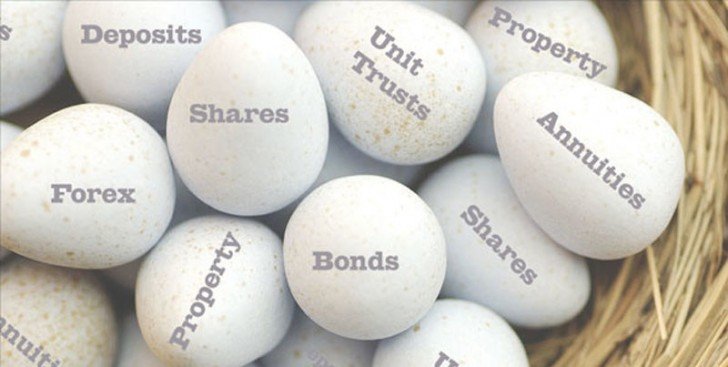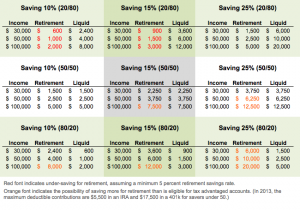How Do You Survive After Retirement?
Almost all people who are thinking or have thought of retiring encounter the most dreaded question of all: “How do I survive after years of getting a steady paycheck?” The only way to allay your financial fears is to “face the issue head-on”.
Planning for retirement is a big deal. However, when you have no recourse but to face the inevitable, just take a deep breath, calm your nerves, and clear your mind of any clutter. Then, get right down to it and list down your options.
If you don’t want to work [in retirement] you have to work to earn enough money so that you won’t have to work.
— Ogden Nash
 Your Retirement money
Your Retirement money
This will be your primary source of income after retirement. Your biggest concern will likely be having enough funds to sustain your day-to-living, medical expenses, and other necessities. These are on top of your other spending, including social and recreational activities. More often than not, you are faced with the dilemma of running out of funds as a result of the following:
- Vast and unplanned expenses that put a dent in your savings, but one that cannot be avoided.
- Withdrawing too much money from your retirement fund is a potential disaster for most retirees.
- Investment losses due to market conditions, or simply because of a bad investment decision.
- Living longer than where your money would take you.
However, you should not feel altogether afraid of these realities. What’s important is that you have the time to prepare for any of these eventualities so as to safely cushion the probable blow. While making that decision on how to best preserve and grow your retirement money, consider the following risks:
Risks

Liability Risk. When you manage your own money, you do not receive any protection from liability. Nowadays, you can be sued easily for anything. Should this happen, most, if not all of your savings may just be lost to legal costs.
Investment Risk. Unless you are confident of your investment knowledge and skills, it is wise to put your trust on a reputable firm to can help you manage your money for investment purposes. However, don’t ever make the mistake of putting everything into an instrument or a plan, no matter how huge that promised returns are.
Inflation Cost. Most annuity payments do not consider the inflation cost. However, there are products that feature payment adjustments to provide for inflation. That is just one downside of having annuity plans. Nevertheless, the assurance of getting regularly paid all your lifetime is its best advantage.
 Expected Income. Annuity payments let you plan your expenses because you already know how much you’re getting over a fixed period. The key is to find the “most reputable provider” and a plan that would best serve your needs.
Expected Income. Annuity payments let you plan your expenses because you already know how much you’re getting over a fixed period. The key is to find the “most reputable provider” and a plan that would best serve your needs.
Longevity. The insurance company a contract with you, which will enable you to receive payments for life. Therefore, you need to be very selective when finding a plan to cover you and your spouse or partner. The protection is against any financial crisis that may put a burden on the surviving spouse or partner as far as self-managed money is concerned.
Mortality. Consider a scenario where you have left money for your heirs when you pass away. Most annuity payments stop when you die. It is, therefore, important that you have a provision for the expenses that will be incurred should something happen to you.
 Social Security
Social Security
It takes care of your basic needs and provides a certain amount of assistance for your medical, health and funeral requirements. Therefore, it is important to know your rights, how much you need to contribute, and the opportune time to collect your benefits. Your social security benefits will also come to your rescue should you find yourself in a financial situation. That is, when your other income sources are unable to sustain your living conditions.
 Retirement or Pension Plan
Retirement or Pension Plan
This is for those who have earlier on in their working life, taken a life insurance or a pension plan with an investment and/or annuity features. The objective of getting a plan like this is to have financial protection when you retire. Usually, you are given the option to let the funds stay with the insurance company. Otherwise, you get regularly paid in trickles as a form of income.
 Possible Part-time and Stress-Free Work
Possible Part-time and Stress-Free Work
 There are those who’d still want to earn a certain amount of money in their own “time and terms”. For such people, getting a part-time and stress-free work can do the trick. The income from this source should, however, merely be in support of your other main financial sources. Many retirees who don’t want to be idle resort to this option. It is also a means of keeping their body and mind active while earning money on the side.
There are those who’d still want to earn a certain amount of money in their own “time and terms”. For such people, getting a part-time and stress-free work can do the trick. The income from this source should, however, merely be in support of your other main financial sources. Many retirees who don’t want to be idle resort to this option. It is also a means of keeping their body and mind active while earning money on the side.
Don’t worry too much about what’s going to happen after you retire. Take a proactive approach by planning your retirement and future income, which you then have to objectively and carefully evaluate to see how to best manage it.











